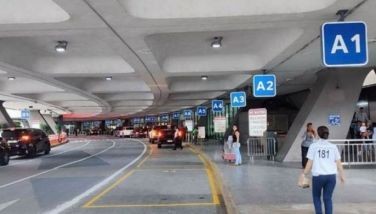Madness of greed and politics

Amid the din of competing voices over the alleged Legacy scam that led to the closure of 13 rural banks and three pre-need companies, the failure of regulators tends to resonate just as loudly as how the perpetrators actually pulled it off.
Assuming that the Bangko Sentral ng Pilipinas succeeds in pinning down Legacy and the group of De los Angeles (the accused, by the way, has been described as a “syndicate’’ by the regulatory agency), we taxpayers will probably have to shoulder the estimated P14 billion in deposits allegedly spirited out of the Legacy banks. Most of the deposits were within the range of PDIC’s deposit insurance coverage.
It seems that Legacy and De los Angeles have been able to exploit to the fullest a weakness in the system that had been already noted in the past from the experience of mismanaged banks that eventually closed, and of pre-need companies that became illiquid after being too liberal about the use of collections to venture into other investments.
This is perhaps the right time to question just exactly what the culpability of our government in the succession of corporate failures is that have led to the public losing their savings and tax payments. How culpable is the BSP, the Securities and Exchange Commission, the Philippine Deposit Insurance Corp., and yes, even the Department of Justice? Ultimately, even our Congress has its share of blameworthiness.
BSP’s role in the episode
Based on newspaper accounts, which hasn’t been disputed so far, De los Angeles was banned by the central bank from the financial sector during the 80s and this supposed exclusion was lifted under the Arroyo administration sometime in 2003.
According to some media reports, BSP Deputy Governor Alberto Reyes said that the central bank had been on Legacy’s trail since 2003, about the time when De los Angeles’ Rural Bank of Parañaque was offering the highly questionable double-your-money schemes.
The timeline may suggest that the BSP could have prevented the whole unfortunate scam from happening just by maintaining the ban against the mayor.
In the Philippine context, however, it is easy to surmise that some form of political connection may have worked to get the BSP clearance for De los Angeles.
But going back to the BSP’s accountability, its claim that it had been trying to pin Legacy down for six years seems to be a little difficult to believe. Were they not alarmed that the Legacy-controlled banks were offering as high as 20- percent interest rates to attract depositors? This is more than five times what other banks pay for deposits.
Were central bank officials at that time actually convinced that the Legacy-controlled banks could earn more that what they promised to pay their depositors? To promise to pay a 20-percent return on deposits, the bank must have been earning much more on their funds and operations. That possibility should have aroused, at least, some curiosity if not downright suspicion.
What about SEC
If the BSP seemed inept, then the Securities and Exchange Commission will take the cake in what appears to be totally helplessness in regulating the pre-need industry where Legacy’s three companies offered similar double-your-money schemes.
Legacy Consolidated Plans Inc., Scholarship Plan Phils. Inc. and All Asia Plans Corp. had to shut operations in December along with the banks.
The PEP Coalition, formed by disgruntled Pacific Plans Inc. investors, said it had warned the SEC against the practices of Legacy-owned pre-need firms as early as 2006.
How Legacy pre-need companies were able to renew their licenses year in and year out, and then suddenly last December, padlocked their offices claiming insolvency needs a clear response from SEC? Was SEC not aware of their financial condition before renewing their licenses? Dire financial situations don’t just happen overnight. There were clear indications and alarm bells that apparently were not heeded at all by the SEC.
It is such a shame that all these scams had happened right before the very eyes of people tasked to police them, and who are now claiming they were powerless to prevent such misdeeds.
The other irony in this whole episode is that depositors of the Legacy-controlled banks who were attracted to the “double-your-money” Ponzi-like schemes are protected by government while those who parted with their money for pre-need plans to cover for example the future education of their children are not.
‘No fear’ insurance
Then there is the PDIC that is now on the verge of raising to P500,000 from P250,000 its deposit insurance coverage. It was rumored that Legacy officials soothed potential depositors’ anxieties on the question of abnormally high returns by assuring them of PDIC coverage.
How many other similar groups will exploit this line? In the end, it is the taxpayers that suffer while the culprits are able to dodge liability through a convoluted maze of useless investigations and exasperating legal proceedings.
The past Senate hearings “in aid of legislation” is wearing thin. When will we see a law that will be able to finally stop abusive businesses and individuals from running Ponzi or scandalously high interest rate schemes without fear of being caught?
When can we expect regulators to finally resolve the impasse that should guide the pre-need industry back to health, and perhaps be able to return to victimized policy holders their hard-earned money? When will we see the guilty perpetuators brought to justice?
So many victims; so many years have already lapsed. When will all of this madness stop?
Should you wish to share any insights, write me at Link Edge, 25th Floor, 139 Corporate Center, Valero Street, Salcedo Village, 1227 Makati City. Or e-mail me at [email protected]. For a compilation of previous articles, visit www.BizlinksPhilippines.net.
- Latest
- Trending





























